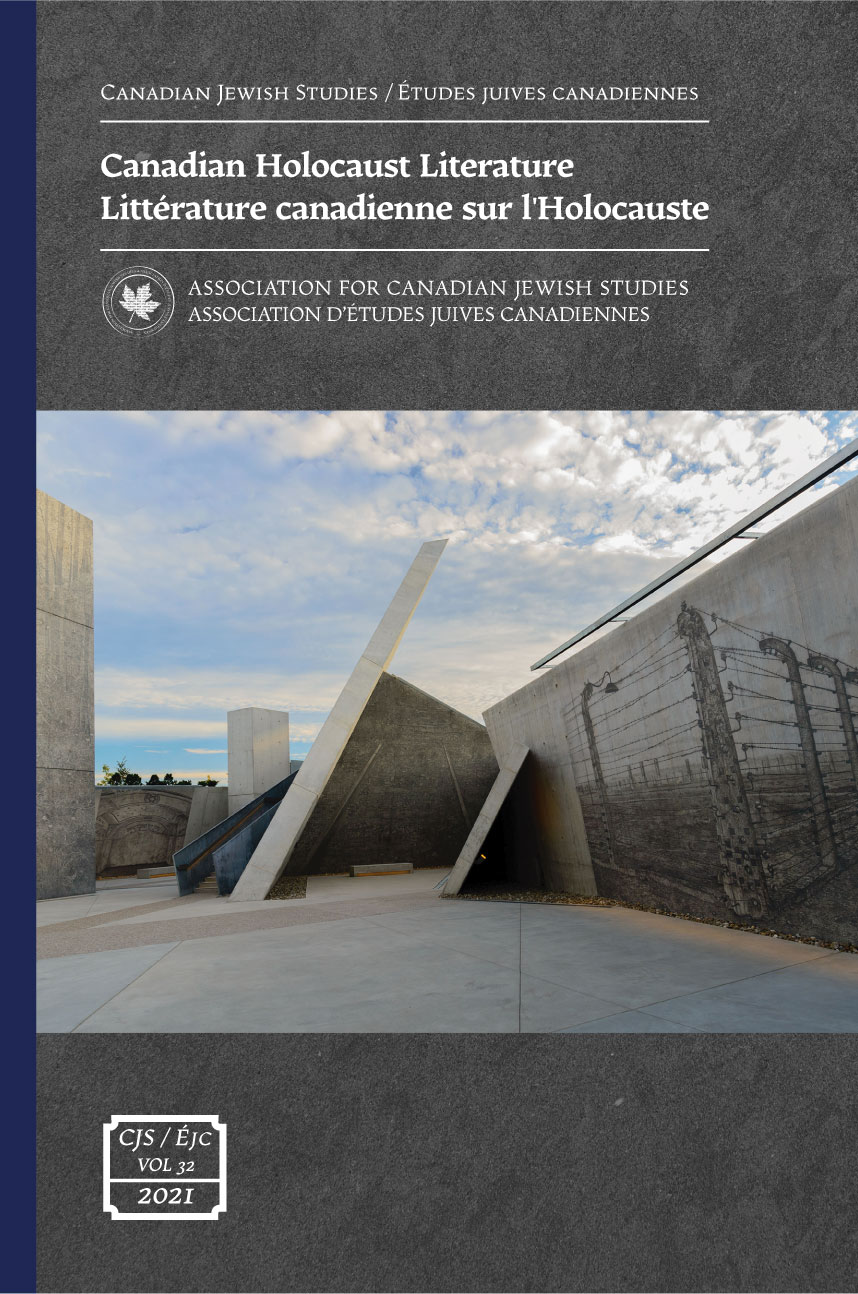Description de la résistance, résistance par la description dans Eva et Ruda : récit à deux voix de survivants de l’Holocauste d’Eva et Rudolph Roden
DOI:
https://doi.org/10.25071/1916-0925.40241Keywords:
Holocaust, Literature, Memoirs, Diaries, and AutobiographiesAbstract
La parution en 2010 d’Eva et Ruda : récit à deux voix de survivants de l’Holocauste, d’Eva Roden et Rudolph Roden constitue pour le Centre commémoratif de l’Holocauste à Montréal un moment charnière : « c’est la première fois au Québec qu’une maison d’édition publie un témoignage de survivants montréalais en langue française. » Un examen narratologique des actes de résistance relevés dans le discours descriptif met d’abord ici en évidence un soulignement des modalités du « faire » autorisant une esquisse du personnage-résistant. L’analyse révèle ensuite chez le descripteur-résistant cette fois, un projet de résistance à l’oubli sous-tendu par la mise en place de deux stratégies à vocation rhétorique : l’« assimilation par reformulation » et les « plans comparatifs. » L’étude permet enfin de distinguer certaines marques de genre propres à la littérature concentrationnaire.
The publication in 2010 of Eva et Ruda : récit à deux voix de survivants de l’Holocauste, by Eva Roden and Rudolph Roden, constitutes a turning point for the Montreal Holocaust Memorial Centre: “It is the first time in Quebec that a publishing house has published a testimony by Montreal survivors in French.” A narratological examination of the acts of resistance found in the descriptive discourse first highlights an underlining of the modalities of “doing” that allow for an outline of the character-resistance. The analysis then reveals in the describer-resistant, this time, a project of resistance to oblivion underpinned by the implementation of two rhetorical strategies: “assimilation by reformulation” and “comparative plans”. Finally, the study makes it possible to distinguish certain marks of genre specific to concentration camp literature.
Downloads
Published
Versions
- 2021-10-31 (2)
- 2021-10-25 (1)
How to Cite
Issue
Section
License
Canadian Jewish Studies/ Études juives canadiennes is a journal dedicated to the open exchange of information; therefore the author agrees that the work published in the journal be made available to the public under a Creative Commons Attribution-Noncommercial-No Derivative Works 4.0 Unported License. The publisher (Association for Canadian Jewish Studies / Association d'études juives canadiennes) recognizes the author's intellectual property rights; authors retain copyright over their work. The author grants the publisher first serial publication rights and the non-exclusive right to mount, preserve, and distribute the intellectual property. The journal is digitized and published on the open access website http://pi.library.yorku.ca/ojs/index.php/cjs/index.







